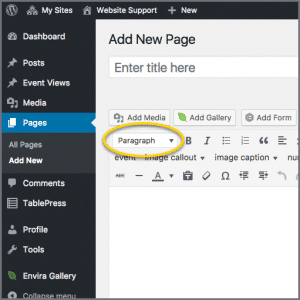What Is Payroll Processing Outsourcing & How Does It Work?

Hiring professionals who have expertise in payroll will put your mind at ease. You can feel confident knowing that they will take care of every last detail with payroll processing. Operating payroll can create complexities that only take your time and money. Receiving payroll reports tailored to your specific company is a huge benefit when considering outsourcing. An outsourced payroll company can help explain data in a way you will understand.
- The final major component of the process is for outsourced end-of-year tax duties.
- With this option, you would pay a base fee of about $75 and around $6 per employee, making your total charge for the month, in our example, roughly $135.
- Outsourcing payroll to a stable, experienced provider can offer a “safe haven” for your confidential payroll data.
- According to a Statista survey published in 2022, 12% of companies globally fully outsourced payroll, while 26% co-outsourced payroll.
- Depending on your business requirements, you can customize the payroll services you want to outsource while retaining control of certain aspects.
An outsourced payroll solution will provide you peace of mind while also saving you time. As a result, you’ll save money while also minimising your risk of noncompliance. Finding a trustworthy third-party provider goes a long way, but a company can’t just pass off any payroll mistakes that arise as the fault of its provider and move on. At the end of the day, the company is still responsible for properly compensating its employees, and problems created or left unresolved by the provider will continue to cost time and money until they’re addressed.
When you hand over your company’s payroll responsibilities to a payroll management expert, you have every right to expect it to be done more effectively than how it was done in-house. Plus, accuracy every step of the way is the benchmark of a good payroll specialist. By relieving the payroll department of these burdens, these employees can focus on other key areas of the business, such as developing financial strategies that strengthen the company’s competitive advantage. Companies must understand that outsourcing payroll does not mean they can do without internal payroll professionals.
It’s crucial to keep in mind what’s at stake when choosing a payroll outsourcing provider. An experienced provider makes things easy for the client, but clients shouldn’t be misled into thinking that they are secure. Data breaches and mistakes can happen to even the best payroll managers. To minimize these inherent risks of outsourcing, make sure the provider you choose is trustworthy and experienced.
You’ll be more productive and have time to focus on more strategic initiatives for your organization. Outsourcing can make tax filing, calculating payroll, and other payroll-related matters easier and more efficient, whether you’re a small business owner or a payroll specialist at an enterprise company. Businesses need to be fully focused on their international expansion if they want to hit their growth targets.
How do you find a qualified payroll outsourcing partner?
A further benefit of payroll outsourcing is business efficiency and risk reduction. Outsourcing payroll offers a cost-effective, secure and comprehensive solution for payroll processes and technology. Companies can gain access to the latest technology from a professional service provider, with the in-depth expertise to ensure high levels of visibility, control, compliance and data security to minimise business risk. Managing the employee payroll can be time-consuming – unless another company is hired to do it for you. Outsourcing payroll can result in big cost savings and provide access to payroll management experts, but it also comes with unique challenges and risks. How payroll outsourcing works and how your company can evaluate an outsourcing strategy are covered in our ultimate guide to payroll services outsourcing.
- If you’re hiring internationally, look for a global payroll provider like Deel that can take on the responsibility of navigating unfamiliar payroll laws and best practices for you.
- In fact, according to a Deloitte survey, as many as 45% of small businesses say avoiding mistakes was a reason they chose to outsource payroll.
- Choosing a service like QuickBooks can be a great way to accomplish those goals.
- As mentioned above, it is extremely important to ensure that all company and employee information is protected and to establish confidentiality and data protection policies and agreements.
The process of managing employee payroll is often time-consuming—unless, that is, another company is hired to take care of it instead. Payroll outsourcing can lead to big cost savings and provide access to payroll management experts, but doing so also comes with unique challenges and risks. Our 2023 guide takes you through the ins and outs of how payroll outsourcing works and how your company can best evaluate a possible outsourcing strategy.
Guide to successful payroll outsourcing
The process begins with the integration of employees into a payroll system and extends through end-of-year tax responsibilities. Some suppliers offer additional services related to payroll, such as pension plans, benefits administration, and timekeeping systems. Each state government requires a company to report the hiring of new employees to them, so that they can Top Excel Inventory Templates determine if there are any garnishments outstanding against these individuals. These questions are important to answer because not only will they guide you to what the best option for you is, but also the specific type of payroll provider you should be looking for. This pricing structure is increasing in popularity because it often results in savings for employers.
Once information has been exchanged and procedures established, the payroll outsourcing provider begins its actual duties. This almost always involves distributing pay on a clearly defined schedule (every two weeks is popular). As with performing payroll functions in-house, applicable taxes must be withheld by the provider before payments are made.

Payments must be withheld by the provider before applicable taxes are withheld. According to a Statista survey published in 2022, 12% of companies globally fully outsourced payroll, while 26% co-outsourced payroll. For small businesses that are not already outsourcing their payroll, this transition could be a lot easier and happen at any time. We recommend consulting with a payroll specialist to determine what kind of timeline your company needs to get fully outsourced.
Reduce risk and avoid paying penalties
Companies choose to outsource payroll to save time and money, and to prevent payroll errors that could have serious consequences. While payroll functionality is essential, factors like cost and compliance also contribute to the decision-making process. It’s necessary to understand the pros and cons of outsourcing payroll, so you’re confident in your choice.
‘Processing’ – a hybrid solution – also known as a ‘bureau’ model – where some of the functions are outsourced to a payroll vendor. These might include calculation of the gross-to-net, and production of the payroll outputs, such as reports, payslips and bank files. These processes can be carried out either ‘in house’, or by a third party. When a business contracts with a third party to provide the service, this is known as outsourcing. Outsourcing payroll is one of the most common types of business process outsourcing. For most of the 20th century, companies strove to own and exercise control over all business functions and assets.
We know the challenges of building global teams
With capability in over 140 countries, we can help you handle your local payroll and compliance – globally. In-country provider – choosing an in-country provider can be a good option for businesses to outsource payroll if they have no plans to expand their operations abroad. In this model, the provider is based in the country where the employees work and have knowledge about the local payroll rules, but don’t have offices elsewhere or provide multi-language solutions. These factors could prove to be limitations, however, if the business expands internationally. Businesses have several options when it comes to payroll outsourcing, in which day-to-day management of the payroll function is handed over to external payroll outsourcing service providers to a greater or lesser extent. There are advantages and disadvantages to using each of these models, and the ultimate decision depends on the type of support the business requires.
Fiduciary services
Outsourcing payroll therefore frees businesses from worrying about important payroll-related deadlines and other global payroll compliance risks. Another benefit to outsourcing is that payroll functions can be assumed by providers specializing in effective payroll management. For most companies, performing payroll functions in-house amounts to nothing more than an important housekeeping duty; the company itself is expert in something entirely different.
And, understand how to factor in health care deductions, Social Security, employee tax withholding, and employee benefits. 73% of employers worldwide, as per a survey conducted by Deloitte, choose to outsource payroll. On the other hand, our team of professionals handles legal compliance, taxes, and necessary payroll deductions, which can be challenging when you employ a global team.
Join our monthly newsletter
Therefore, it’s hardly surprising that payroll is the business function that companies outsource most often. The business case for global payroll outsourcing is even stronger than for domestic payroll. That’s because the complexity and compliance risks linked to payroll increase with every new target market. Outsourcing payroll helps ensure that your deductions are aligned, that what you’re offering complies with regulatory guidelines, and that payments to providers are sent on time to avoid interrupted benefits coverage. Once a business has hired its first employee, payroll responsibilities will continue every pay period.
